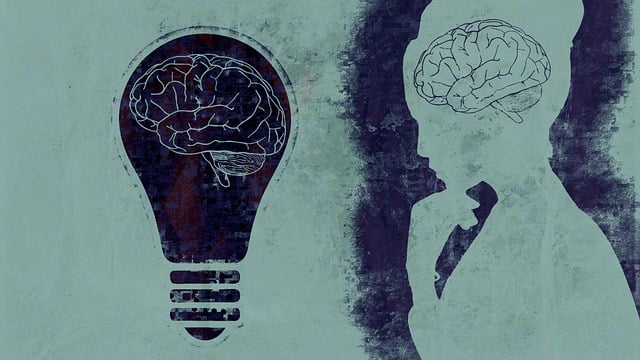The media's portrayal of mental illness significantly impacts public understanding, often perpetuating stereotypes that hinder support systems and policy advocacy. Denver Acceptance and Commitment Therapy (ACT) offers a novel approach by fostering resilience through values-driven actions and mindfulness. Encouraging open dialogues about mental health in the media, coupled with burnout prevention for healthcare providers, could lead to more accurate portrayals, boosting confidence in individuals struggling with their mental wellness. ACT's key strengths include cultural sensitivity and holistic approaches that enhance mental well-being and improve quality of life for diverse mental health conditions. Media content creators can challenge stereotypes by including authentic stories featuring diverse characters with mental health conditions, integrating evidence-based treatments like ACT, and balancing storytelling with factual information.
In today’s media-driven world, the representation of mental illness plays a pivotal role in shaping public understanding. “Understanding Mental Illness Representation in Media: The Current Landscape” explores how popular culture portrays various conditions, while “Denver Acceptance and Commitment Therapy (ACT): A Promising Approach” introduces an effective treatment method. This article also offers “Strategies for Enhancing Positive Mental Health Portrayals in Media,” aiming to improve media literacy and promote healthier perceptions of mental health through evidence-based practices like Denver ACT.
- Understanding Mental Illness Representation in Media: The Current Landscape
- Denver Acceptance and Commitment Therapy (ACT): A Promising Approach
- Strategies for Enhancing Positive Mental Health Portrayals in Media
Understanding Mental Illness Representation in Media: The Current Landscape

The media plays a significant role in shaping public understanding of mental illness, influencing perceptions and attitudes towards those living with these conditions. Currently, representation in the media is often stereotypical or inaccurate, perpetuating harmful misconceptions. This lack of nuanced portrayal can hinder support systems for individuals seeking help and even impact the development of effective Mental Health Policy Analysis and Advocacy strategies. For instance, the stigmatization commonly seen in mainstream media contributes to the isolation experienced by many with mental health issues, especially when they desperately need communities that foster understanding and acceptance.
Denver Acceptance and Commitment Therapy (ACT) offers a promising approach to challenging these negative representations. By focusing on values-driven actions and defusing the struggle against difficult thoughts and feelings, ACT can help individuals build resilience and live more fulfilling lives. Moreover, encouraging open dialogues about mental health in media, coupled with Burnout Prevention Strategies for Healthcare Providers, could lead to more realistic portrayals that boost confidence in those struggling with their mental wellness and encourage seeking support.
Denver Acceptance and Commitment Therapy (ACT): A Promising Approach

Denver Acceptance and Commitment Therapy (ACT) has emerged as a promising approach to addressing mental illness representation in media. This form of therapy focuses on helping individuals cultivate mindfulness, accept difficult thoughts and emotions, and commit to actions that align with their values. By promoting Mind Over Matter principles, ACT empowers people to navigate life’s challenges without being controlled by negative thought patterns or emotional distress.
One of the key strengths of Denver ACT lies in its emphasis on Cultural Sensitivity in Mental Healthcare Practice. This approach recognizes and respects individual differences, ensuring that therapy is tailored to meet the unique needs and perspectives of each client. By fostering a safe and inclusive environment, ACT encourages open exploration of personal experiences and beliefs, promoting positive thinking and resilience. This holistic approach has shown significant potential in enhancing mental well-being and improving overall quality of life for individuals struggling with various forms of mental illness.
Strategies for Enhancing Positive Mental Health Portrayals in Media

Media has a significant impact on shaping societal perceptions, including those related to mental health. To challenge negative stereotypes and promote understanding, content creators can adopt several strategies for enhancing positive mental health portrayals. One effective approach is to feature diverse characters with various mental health conditions, ensuring their stories are represented authentically. This diversity not only educates audiences but also encourages empathy and acceptance.
Incorporating evidence-based treatments like Denver Acceptance and Commitment Therapy (ACT) can further add depth to these narratives. By showcasing therapeutic processes and the power of emotional intelligence in managing mood, media can offer practical insights into burnout prevention. Balancing storytelling with factual information ensures that viewers receive both entertainment and valuable knowledge for improving their mental well-being.
In conclusion, improving mental illness representation in media is crucial for fostering a more accepting society. As previously mentioned, Denver Acceptance and Commitment Therapy (ACT) offers a promising approach by promoting positive portrayals of mental health. By implementing strategies to enhance these depictions, such as increasing diversity and accuracy, the media can play a significant role in reducing stigma and encouraging support for those facing mental health challenges. In terms of navigating this landscape, it’s worth noting that every step towards more accurate and empathetic representation is a testament to our collective progress.














